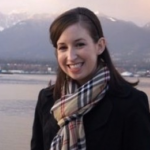Mind the Milestones: Becoming an Adult while Living with Cancer
January 22, 2015
By: Chad Hammond
Development — it’s a dark hallway of a word. When I asked young adults with cancer to talk about the years before their diagnosis, they mentioned developmental “milestones” like figuring out who you are, acquiring a higher education, securing a stable career, finding a life partner, buying a family home and filling it with, on average, 2.5 children. Most people list at least some of those milestones when asked what they want to be when they grow up (sometimes into their thirties), but the culture of young adulthood in Canada is changing, and this impacts young adults living with cancer: People are spending larger chunks of their 20s, 30s, and even 40s exploring different interests, identities, activities, and desires. There are reports of the promises and perils of postsecondary education — on the one hand, a licence for creative expression, critical thinking, and a meaningful career, and on the other hand, prohibitive costs, limited employment afterward, and deferral of other goals and dreams. Family life is also reconfiguring for many young adults — more people are deciding not to marry (or to wed later), bringing in double income (sometimes just to get by), choosing to rent over signing a lifer mortgage, and questioning when and whether they want children. It seems that although there’s this tunnel vision of what it means to develop into an adult, with milestone following after milestone, people end up walking down very different, sometimes circular, sometimes zigzagging, hallways.
I began to understand just how complicated development can be when I asked young adults to talk about the effects of cancer and its treatment on their development. One of the hardest and most common struggles was the feeling of being ‘behind’ their peers — watching friends breeze through milestones while they inched toward simply being independent again. Many said that when cancer came on the scene, the pressures to achieve the above milestones often intensified, at a time when they couldn’t be more remote. Coming out of treatments can be like walking into a thick haze, not just because of the chemo brain but also the enduring confusion over what to do next. It can be agonizing to look around and think that everyone but you has got this development thing figured out.
I’m here to derail the idea that young adults with cancer are ‘behind’ anyone because that idea assumes we’re all walking the same hallway. What we’re seeing today among young adults — whether they’re ill or not — is that a whole circuitry of halls are available for fostering a personally meaningful life and for contributing to the life of our communities. We often think of development as accomplishments — getting things done — but there’s room to also approach it in more open-ended terms, like an unfolding or unveiling. Following that line of thought, I felt my participants didn’t give themselves enough credit for the (perhaps unwelcome) critical insights they had acquired into development, what some of them described as a maturing effect of confronting an uncertain future. And by telling their hard-won stories of facing that dark hallway, young adults with cancer might encourage the wider young adult community to think about development in different ways. After all, development often comes in exchange for our youthful expectations of a normal, predictable life.




